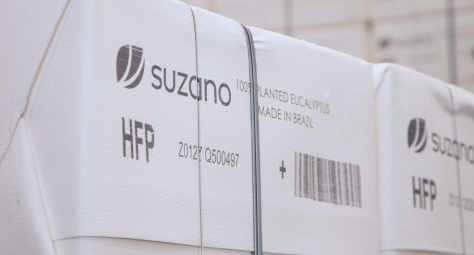sobre o que você deseja falar?


perguntas, sugestões ou problemas técnicos envolvendo a plataforma

informações sobre a empresa


The relationship process with neighboring communities has two main purposes: the first is to maintain Suzano's social license to operate and the second is to strengthen territorial development. To achieve these goals, it is essential to ensure constant and transparent communication with local associations and cooperatives, NGOs, isolated neighbors, unions, municipalities, states and other companies, thus maintaining the positive predominance in the territory's perception of Suzano.
Beyond communication, a fundamental aspect is that the company is open to building solutions together with communities to address relevant issues in the local context, which can be environmental, social, cultural, economic, structural or even emergency. The two dimensions (communication and developing joint solutions) are totally connected and feed back into our relationship strategy.
This strategy covers the entire area of influence of the 13 manufacturing units¹ and the forestry base that feeds these units, as well as port operations in Brazil. In global figures, these operations directly or indirectly influence the daily lives of around 1,630 localities in more than 200 municipalities in 9 Brazilian states.
The process of implementing the relationship and social investment strategy in neighboring locations is led by the local Social Relationship teams, spread across all of Suzano's operating units. This implementation is structured around some strategies, such as:
In addition to the approach and dialogue mechanisms mentioned above, Suzano maintains a process for recording and managing all interactions, requests, compliments and complaints from localities, neighbors, and local entities, via Relacione+, a system developed by the company itself to ensure that any communication/interaction with interested parties is duly heard and dealt with by Suzano.
Also as a way of engaging and characterizing the territories in which it operates, the company applies an instrument known as the Social Inventory, through participatory consultations with communities, to gather information for characterization and, consequently, prioritization of the relationship process. Among the information gathered is basic infrastructure, such as access to energy, access to water, schools, and health facilities, the dynamics and model of local development, among other data.
Other models of engagement are the processes of identifying, classifying and monitoring High Conservation Value Areas (HCVAs), Sites of Special Significance (SSSs) and archaeological sites of interest or the uses and access by communities in the company's areas. Also noteworthy is the monitoring of social programs and projects in the strategic areas of Relationships, Poverty, and Education.
The entire process described above is valid for new operations (a new factory, for example) or even for the acquisition of new farms, when the aforementioned actions are preceded by social due diligence, carried out before a new farm is included in Suzano's portfolio through acquisition, lease or just the purchase of timber. This process is a prior social risk analysis, which characterizes the neighborhood and identifies possible social liabilities/risks related to the property. Depending on the risk, the social area may recommend not closing the deal.
The following information is available in the tables below:
Note:
| 2020 | 2021 | 2022 | 2023 | 2024 | |
|---|---|---|---|---|---|
| número total | número total | número total | número total | número total | |
|
São Paulo |
0 |
0 |
0 |
0 |
0 |
|
Mato Grosso do Sul |
0 |
1 |
1 |
1 |
1 |
|
Espírito Santo |
1 |
0 |
0 |
0 |
1 |
|
Bahia |
0 |
0 |
0 |
0 |
0 |
|
Maranhão |
0 |
0 |
0 |
0 |
0 |
|
Total amount |
1 |
1 |
1 |
1 |
2 |
| 2020 | 2021 | 2022 | 2023 | 2024 | ||||||||||||||||||||||||||
|---|---|---|---|---|---|---|---|---|---|---|---|---|---|---|---|---|---|---|---|---|---|---|---|---|---|---|---|---|---|---|
| São Paulo | Mato Grosso do Sul | Espírito Santo | Bahia | Maranhão | Total | São Paulo | Mato Grosso do Sul | Espírito Santo | Bahia | Maranhão | Total | São Paulo | Mato Grosso do Sul | Espírito Santo | Bahia | Maranhão | Total | São Paulo | Mato Grosso do Sul | Espírito Santo | Bahia | Maranhão | Total | São Paulo | Mato Grosso do Sul | Espírito Santo | Bahia | Maranhão | Total | |
| % | % | % | % | % | % | % | % | % | % | % | % | % | % | % | % | % | % | % | % | % | % | % | % | % | % | % | % | % | % | |
|
Social impact assessments, including gender impact assessments, based on participatory processes² |
100,00% |
100,00% |
100,00% |
100,00% |
100,00% |
100,00% |
100,00% |
100,00% |
100,00% |
100,00% |
100,00% |
100,00% |
100,00% |
100,00% |
100,00% |
100,00% |
100,00% |
100,00% |
100,00% |
100,00% |
100,00% |
100,00% |
100,00% |
100,00% |
100,00% |
100,00% |
100,00% |
100,00% |
100,00% |
100,00% |
|
Environmental impact assessments and ongoing monitoring |
100,00% |
100,00% |
100,00% |
100,00% |
100,00% |
100,00% |
100,00% |
100,00% |
100,00% |
100,00% |
100,00% |
100,00% |
100,00% |
100,00% |
100,00% |
100,00% |
100,00% |
100,00% |
100,00% |
100,00% |
100,00% |
100,00% |
100,00% |
100,00% |
100,00% |
100,00% |
100,00% |
100,00% |
100,00% |
100,00% |
|
Public disclosure of the results of environmental and social impact assessments |
100,00% |
100,00% |
100,00% |
100,00% |
100,00% |
100,00% |
100,00% |
100,00% |
100,00% |
100,00% |
100,00% |
100,00% |
100,00% |
100,00% |
100,00% |
100,00% |
100,00% |
100,00% |
100,00% |
100,00% |
100,00% |
100,00% |
100,00% |
100,00% |
100,00% |
100,00% |
100,00% |
100,00% |
100,00% |
100,00% |
|
Local development programs based on the needs of local communities |
100,00% |
100,00% |
100,00% |
100,00% |
100,00% |
100,00% |
100,00% |
100,00% |
100,00% |
100,00% |
100,00% |
100,00% |
100,00% |
100,00% |
100,00% |
100,00% |
100,00% |
100,00% |
100,00% |
100,00% |
100,00% |
100,00% |
100,00% |
100,00% |
100,00% |
100,00% |
100,00% |
100,00% |
100,00% |
100,00% |
|
Stakeholder engagement plans based on stakeholder mapping |
100,00% |
100,00% |
100,00% |
100,00% |
100,00% |
100,00% |
100,00% |
100,00% |
100,00% |
100,00% |
100,00% |
100,00% |
100,00% |
100,00% |
100,00% |
100,00% |
100,00% |
100,00% |
100,00% |
100,00% |
100,00% |
100,00% |
100,00% |
100,00% |
100,00% |
100,00% |
100,00% |
100,00% |
100,00% |
100,00% |
|
Committees and processes for broad consultation with the local community, including vulnerable groups |
100,00% |
100,00% |
100,00% |
100,00% |
100,00% |
100,00% |
100,00% |
100,00% |
100,00% |
100,00% |
100,00% |
100,00% |
100,00% |
100,00% |
100,00% |
100,00% |
100,00% |
100,00% |
100,00% |
100,00% |
100,00% |
100,00% |
100,00% |
100,00% |
100,00% |
100,00% |
100,00% |
100,00% |
100,00% |
100,00% |
|
Work councils, occupational health and safety committees and other employee representative bodies to discuss impacts |
100,00% |
100,00% |
100,00% |
100,00% |
100,00% |
100,00% |
100,00% |
100,00% |
100,00% |
100,00% |
100,00% |
100,00% |
100,00% |
100,00% |
100,00% |
100,00% |
100,00% |
100,00% |
100,00% |
100,00% |
100,00% |
100,00% |
100,00% |
100,00% |
100,00% |
100,00% |
100,00% |
100,00% |
100,00% |
100,00% |
|
Formal processes for complaints from local communities |
100,00% |
100,00% |
100,00% |
100,00% |
100,00% |
100,00% |
100,00% |
100,00% |
100,00% |
100,00% |
100,00% |
100,00% |
100,00% |
100,00% |
100,00% |
100,00% |
100,00% |
100,00% |
100,00% |
100,00% |
100,00% |
100,00% |
100,00% |
100,00% |
100,00% |
100,00% |
100,00% |
100,00% |
100,00% |
100,00% |
| 2020 | 2021 | 2022 | 2023 | 2024 | |
|---|---|---|---|---|---|
| % | % | % | % | % | |
|
São Paulo |
100,00% |
100,00% |
100,00% |
100,00% |
100,00% |
|
Mato Grosso do Sul |
100,00% |
100,00% |
100,00% |
100,00% |
100,00% |
|
Espírito Santo |
100,00% |
100,00% |
100,00% |
100,00% |
100,00% |
|
Bahia |
100,00% |
100,00% |
100,00% |
100,00% |
100,00% |
|
Maranhão |
100,00% |
100,00% |
100,00% |
100,00% |
100,00% |
|
Total amount |
100,00% |
100,00% |
100,00% |
100,00% |
100,00% |
Engagement represents a deeper, more inclusive and continuous structured relationship that establishes Suzano as a partner in local development. According to the company's Social and Environmental Investments and Donations Policy (PC.00.0007), Suzano's social and environmental investments must be primarily the result of community engagement processes. Its methodology takes into account the specificities of the different realities and stakeholders involved, prioritizing and valuing the protagonism of the entire community, the development of legitimate leadership, the building of social capital and the recovery of citizenship and self-esteem.